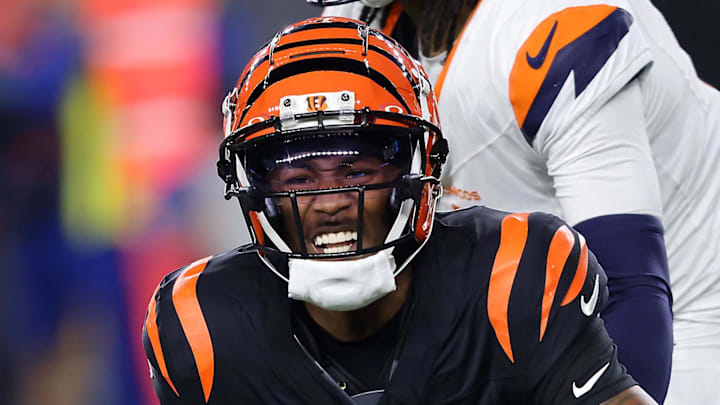We may never know if Washington Commanders general manager Adam Peters seriously considered attempting to acquire Cincinnati Bengals wide receiver Tee Higgins this offseason.
Higgins was at the top of almost every list of pending free agents for 2025. The thought of pairing him with Terry McLaurin in Washington had some fans and analysts drooling. It would have given the Commanders a pair of wideouts to rival the Philadelphia Eagles’ tandem of A.J. Brown and DeVonta Smith.
When Peters agreed to trade for San Francisco 49ers wide receiver Deebo Samuel Sr., it ended any further discussion regarding Higgins. When Cincinnati franchise-tagged the former Clemson star for the second straight year before the deadline, it showed once again how Washington's front-office leader is a step or two ahead of the rest.
Franchise-tagging Higgins does not necessarily mean he will not switch teams before the start of the 2025 season. Franchised players have been traded before — eight times in the past seven years.
There were two such instances during the 2024 offseason. The Carolina Panthers tagged and traded edge rusher Brian Burns to the New York Giants. The Kansas City Chiefs did the same with cornerback L’Jarius Sneed, who was dealt to the Tennessee Titans.
It has happened to a couple of receivers — Jarvis Landry in 2018 and Davante Adams in 2022. Still, it seems unlikely that the Bengals will look to trade Higgins.
Their quarterback Joe Burrow has been very public about wanting to keep both of his star receivers. Ja’Marr Chase is signed through the upcoming season. If nothing changes with the Higgins situation, he will be as well, as soon as the new league year begins on March 12.
Tee Higgins was never a viable option for Commanders GM Adam Peters
Typically, teams use a franchise tag to gain both leverage and time when they are attempting to work out a long-term deal with a star player. That is what the Bengals' Duke Tobin will be trying to do with Higgins, perhaps as part of a more global plan to extend Chase and pass-rusher Trey Hendrickson, and maybe rework Burrow’s deal.
Were Higgins to be traded now, his new team would also try to work out a longer-term deal. Because this is the second consecutive year in which the wideout has been tagged, his one-year salary will be extremely high.
Rather than negotiating from scratch, any team acquiring him would be saddled with his one-year, $26.2 million contract. The new team, like the Bengals, would theoretically attempt to negotiate a long-term deal that would supersede the franchise tag contract.
Higgins would be under no obligation to sign anything. He could collect his $26 million this season and then test the free-agent waters next year.
Higgins is younger than Samuel and his long-term projection appears to be significantly better. But for the price of a fifth-round draft pick, Washington acquired a 29-year-old All-Pro whose cap hit will be minimal in 2025. Then he will be a free agent.
Now that the Bengals have tagged Higgins, any team wishing to acquire him will have to pay a much higher price to the Bengals. They also have to take on a major salary cap hit with no guarantee of being able to lock him down long-term. That was never going to be a legitimate strategy for Peters.
In his short time with the franchise, Peters has shown he prefers to build through the draft and values flexibility. That means he is not likely to tie the Commanders to any player on an expensive long-term deal unless that player is genuinely elite.
Jayden Daniels will be that player a few years from now. Though it does not seem likely at this point, Cleveland Browns defensive end Myles Garrett could become another player in that category before the new season kicks off.
Commanders fans are not used to such savvy management. In the past decade, Washington is the only team in the NFL to have franchised two different players in consecutive seasons without either extending or trading them. That means they paid the maximum and received the minimum in exchange for both quarterback Kirk Cousins and offensive lineman Brandon Scherff.
Peters is not going to hit home runs with every move, and the decline Samuel experienced in 2024 may continue this season. Even if it does, Washington will suffer minimal long-term damage. It is a classic low-risk, high-reward scenario.
The reward for Higgins may turn out to be even higher. But as soon as the Bengals franchise-tagged him, the risk, in terms of likely compensation, skyrocketed. Peters saw that coming and made other, more sensible, plans.
